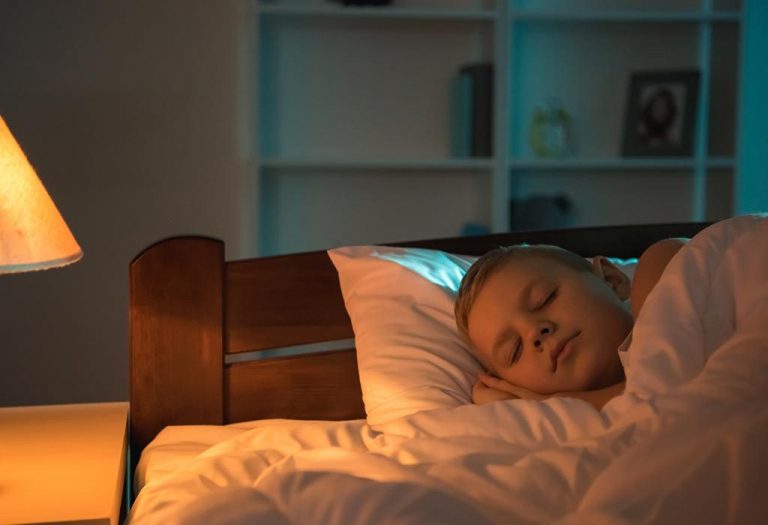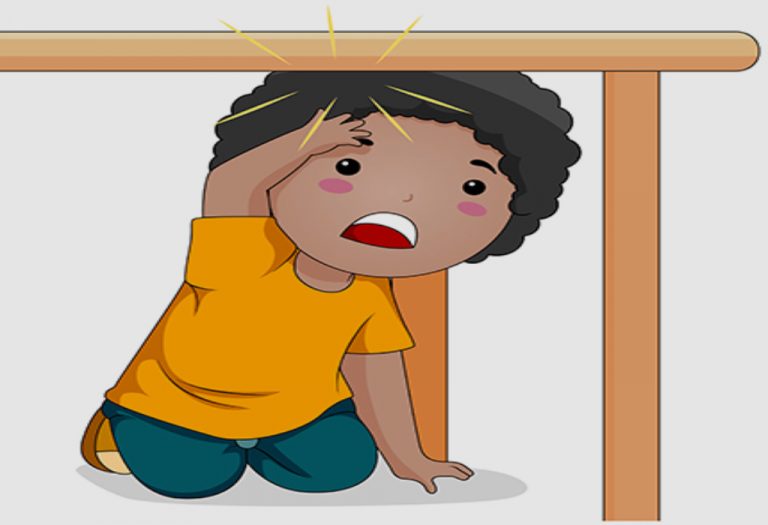How to Make Your Child Sleep Alone?

Many parents wonder, ‘How to get my child to sleep alone?’ Well, getting a toddler to sleep alone requires quite an effort. If your toddler is refusing to sleep alone and you are not doing your bit to develop the habit of making him sleep alone from a young age, then be prepared to deal with some stubbornness as he grows up. Anxiety, distraction, and fear of missing out can make your little one want to sleep with you at night. However, getting kids to sleep on their own from an early age is important. So, how to get kids to sleep in their own bed? Let us help you. To help your child sleep alone, we have collated some tried and tested methods that may prompt you to memorise this article. Without any further ado, let’s get started.
Each and every child has a sleep buddy. While some kids may ask for a particular blanket, pillow, or their favourite toy to fall asleep, other children may prefer to have a parent close to them. As cute and lovely as this sounds in the initial days, it can get problematic for your kid as he grows up. He might fail to sleep or get cranky in scenarios where you may not be present or if you are travelling somewhere. Therefore, it is of utmost importance to teach your child to sleep alone.
Why Should You Make Children Sleep Alone?
When a child is too young, he is extremely attached to his parents, so it may not be wrong for him to want to sleep next to you. However, as he grows, he will have to sleep alone someday. Besides, there are certain reasons why making a child sleep alone has its benefits.
- Right from infancy, parents are always there for their child if he wakes up in the middle of the night in his crib. Holding him and cuddling him tends to make him fall asleep again. But this is not what you can do when your child grows up. Hence, he needs to learn to calm down by himself and not depend on you.
- If parents are around their kid all the time, including when he sleeps, it can make him think that you don’t have any lives and you will be there for him at his beck and call, which is not possible and not even right. This can also get extremely taxing for you later on and even be a problem for the kid.
- Self-esteem and self-worth stem from the fact of feeling independent and confident in oneself. Learning to take care of himself can help a kid shape those tendencies early on in his life.
- As a child grows up, there will be times when he will be alone on school trips, sleepovers, and so on. These events are necessary for your child’s all-round development, and dependency on parents can be a hindrance in that regard.
- While parents might want to sleep with their kids after being away from them for the entire day, it is best if you spend time together at dinner and other activities, keeping sleep as an individual activity.
- Being afraid of the dark, imaginary monsters, or robbers are common problems that make kids want to sleep next to their parents to ensure that they are safe. Though children overcome these fears with time, there is nothing wrong with encouraging them to let go of these fears early in life.
At What Age Should Your Child Sleep Alone?
It is important to teach a child to sleep alone at the right age. If you do it too soon, it could cause separation anxiety or a sense of detachment in the kid. If done later, it can get extremely difficult to break that dependency. So, doing it on time is necessary. Once your child is around 2 to 3 years old, it is a good time to try to make him sleep by himself (1). It might take anywhere from a few months to an entire year before he is able to fall and stay asleep on his own.
Helpful Tips to Make Your Child Sleep Alone
Here are a few tips that can work as a great starting point to get your kid to start sleeping by himself, gradually developing into a lifelong habit.
1. Start Slow
Do not make your child sleep alone all of a sudden. Start slow; set one or two days of the week when he will be sleeping alone, see how he reacts. Be ready for protests and crying, Explain to him in a gentler way (2). As he gets into the habit of sleeping alone, you can increase the days eventually. Soon, he will like the idea of going to bed by himself and will prefer sleeping alone.
2. Create a Ritual
Kids generally face a problem while falling asleep; once they doze off there is nothing to worry about. The presence of a parent allows them to fall asleep quicker than doing so by themselves. Try to set up a ritual of sorts that your kid needs to follow before he sleeps. This can start by brushing teeth, changing into pyjamas, dimming the lights, saying a goodnight prayer reading a story, and so on (3). And soon, he will get into this habit and sleep alone.
3. Show Your Presence
If your child is too attached to you, don’t ignore him. Some children are often triggered to feel safe when they sense their parents either by their voice or even by a specific shirt or blanket. You could try doing that by exchanging your blankets or pillows or giving your child your old sweater to hold while he sleeps.
4. Be Firm
Just when you feel that your child is finally learning to sleep alone, he may show up to your room crying, asking you to sleep in his room. Be gentle and guide him back to his room. It may not always be possible, but make sure you don’t sleep in his room. If necessary, stand by the door of his room for a few minutes till he falls asleep.
5. Encourage and Celebrate
When your child does end up sleeping a night successfully by himself, do let him know you are proud of him. Give him a celebratory snack or a breakfast treat. This can provide an incentive for doing it again until it becomes a habit. You can also tell him that he is brave and that he will sleep alone again, feeling proud of himself.
6. Keep Distractions Away
The presence of electronic devices can make sleeping a difficult task than it already is. Make sure you put a curfew on the time limit for playing games on the phone or watching television. Also, don’t keep any gadgets or electronic devices in your child’s bedroom (4).
7. Avoid Using Sleep as a Threat
Some parents might use sleep as a way of punishing their child when he has done something wrong. This forms a bad relationship with the concept of sleep and can cause other issues like insomnia to crop up early in life.
8. Sleep Separately in the Same Room
If things are too difficult at the start, you can opt to sleep on the floor on a separate mattress instead of the same bed (5). That physical separation can break the first barrier and make things easier later on.
9. Give Them Reassurance
It is normal for children to stay wide-eyed with the fear of having monsters under their bed. Remove their fear by reassuring them and giving them enough reasons to trust you and the process. Be there for your child when they are scared, and gently calm them. Let your child know that you will check on them frequently (6). Constant reassurance will help them memorise the fact that it is all in their head.
10. Have Some Rewards
Make sure you reward your child’s good behaviour of sleeping on their own by letting them choose their favourite toy or snacks.
FAQs
1. How do you make a good bedtime routine?
Start by choosing a bedtime and staying consistent to it. The routine must span 20 to 25 minutes and include 2-3 relaxing activities, like taking a bath, singing songs, putting on nightsuits, brushing teeth together, getting the school backpack ready for the next day, and reading a bedtime story together. End the routine with dim lights, a gentle kiss, and a hug.
2. When should parents allow children to sleep with them?
In occasional circumstances, parents can allow toddlers to sleep with them, such as when they are not feeling well or when they are extremely scared of something or their imagination.
Once you know how to make your child sleep in his own bed, the later progress is pretty much a cakewalk. Sleeping alone does not just give him confidence, but it will help him to become strong and independent in future, too. So, develop this habit in your child soon.
References/Resources:
1. When Should a Child Sleep in Their Own Room? Find Out Here!; Chimat; https://www.chimat.org.uk/when-should-a-child-sleep-in-their-own-room/; August 2023
2. Sleep Issues: Helping My 5-year-old Sleep on Her Own; Hand in Hand Parenting; https://www.handinhandparenting.org/2011/01/helping-a-5-year-old-sleep-on-her-own/
3. Child sleep: Put preschool bedtime problems to rest; Mayo Clinic; https://www.mayoclinic.org/healthy-lifestyle/childrens-health/in-depth/child-sleep/art-20044338
4. How to help your preschooler sleep alone; Harvard Health Publishing; https://www.health.harvard.edu/blog/how-to-help-your-preschooler-sleep-alone-202211212853
5. Howard. J; How do I get my son to sleep in his own bed?; Child Mind Institute; https://childmind.org/article/how-do-i-get-my-son-to-sleep-in-his-own-bed/
6. What Can You Do to Help Overcome Bedtime Fears?; Cincinnati Children’s; https://www.cincinnatichildrens.org/health/b/bedtime-fears
Also Read:
Sleep Talking in Children
Sleep Terror in Toddlers & Kids
Effective Tips to Make Your Kids Sleep Fast
How Much Sleep Do Children Need – Guidelines for Parents
Was This Article Helpful?
Parenting is a huge responsibility, for you as a caregiver, but also for us as a parenting content platform. We understand that and take our responsibility of creating credible content seriously. FirstCry Parenting articles are written and published only after extensive research using factually sound references to deliver quality content that is accurate, validated by experts, and completely reliable. To understand how we go about creating content that is credible, read our editorial policy here.

























